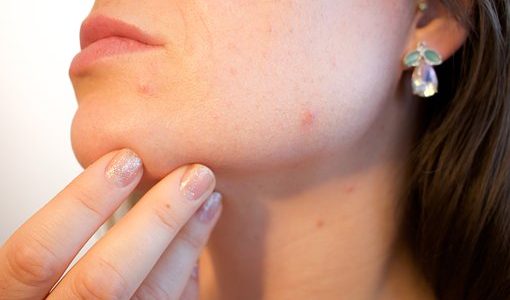New app can help manage skin conditions at the touch of a button
A new app which could save patients with skin conditions having to go to hospital for follow-up appointments is about to be launched in NHS Forth Valley. It will enable a number of patients to link with health professionals at the touch of a button, send photographs in advance and hold ’virtual’ consultations with a clinician.
The digital breakthrough is being led by NHS Forth Valley, in partnership with NHS Greater Glasgow and Clyde and NHS Tayside, and it is hoped that almost 60,000 dermatology appointments per year could be fulfilled using the new app.
Currently, dermatology consultations take place face-to-face between patients and clinical specialists via scheduled appointments. Many patients with chronic conditions do not require a face-to-face appointment to manage their condition and it is envisaged that a large number of clinic-based consultations can be replaced with a digital service.
The app will allow patients to submit images and content to clinicians at scheduled times. The clinician will then review the patient’s submissions and provide a response, which will include a recommended triage pathway and some supporting information. The process will then repeat for the next scheduled virtual appointment. A PDF of the clinical interaction will automatically be placed on the patient’s record.
NHS Forth Valley Consultant Dermatologist, Dr Colin Morton, said: “Using the new app will not only mean we provide reassurance to many patients, but if they do need further tests or treatment we can arrange to see them sooner. Patients also will be given a window of around 3 days to upload their photographs which can then be discussed with a doctor during a scheduled virtual consultation. There is also the opportunity to request more information from the patient or refer images to a colleague for a second opinion.”
Each year 54% of the population are affected by skin conditions and up to a third at any one time have a disease that would benefit from medical care. Dr Morton says the psychological and cosmetic burden of skin disease has also to be taken into account.
He explained: “Demand for dermatology services has been increasing for some time, with many people concerned about risks of developing skin cancer. Early testing of the app suggests that it could be suitable for around 25% of dermatology referrals. We also found that virtual appointments can be effectively conducted in around four minutes rather than ten which has the potential to save nearly 6,000 hours of consultation time per year.
“It also means that many patients, including those with ongoing skin problems such as dermatitis and psoriasis, may not have to travel to hospital for review appointments as we will be able to monitor them digitally and make a clinic appointment only if their condition has changed or worsened. This is an excellent example of what was once a hospital-only service now being provided at the touch of a button.”





